Our favourite places to stay on this sleepy Cebu island.
My Three-Day Nursultan Itinerary: Best Things to Do in Kazakhstan’s Capital
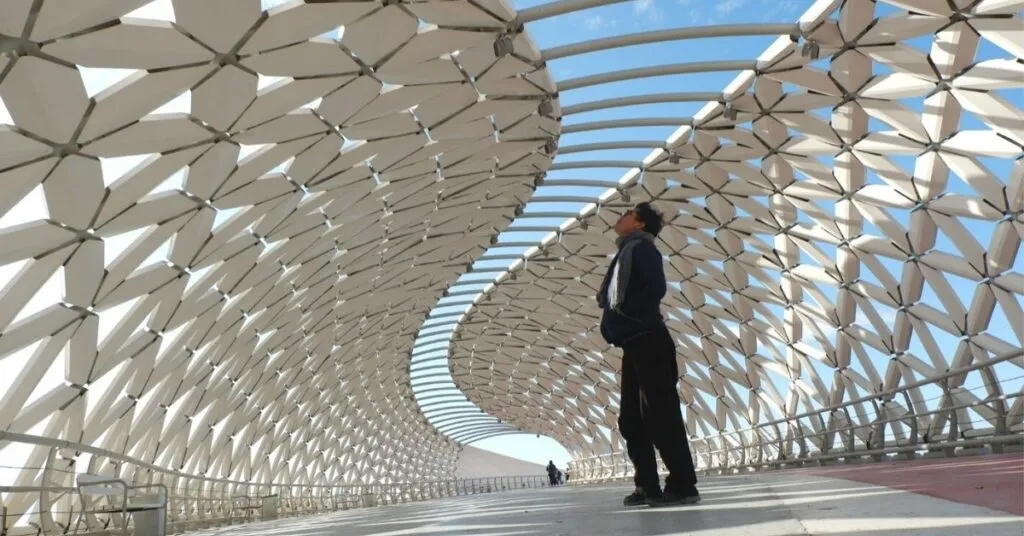
Contributed by Dan Travels
The city of Astana, now called Nursultan, was my first stop on an extended Central Asian adventure last October 2019. Known today as Kazakhstan’s futuristic capital city, Nursultan certainly is a tough place to live in because of its harsh cold climate. Still, it is well worth a short visit. In fact, you can see Nursultan’s main sights and its fascinating buildings in a couple of days.
That’s why to help you jump-start your next holiday here, I’ve put together the perfect three-day Nursultan budget itinerary and travel guide, which includes my overall travel expenses! Are you ready?
Also read: 15 Photos That Will Make You Want to Travel to Countries in Central Asia
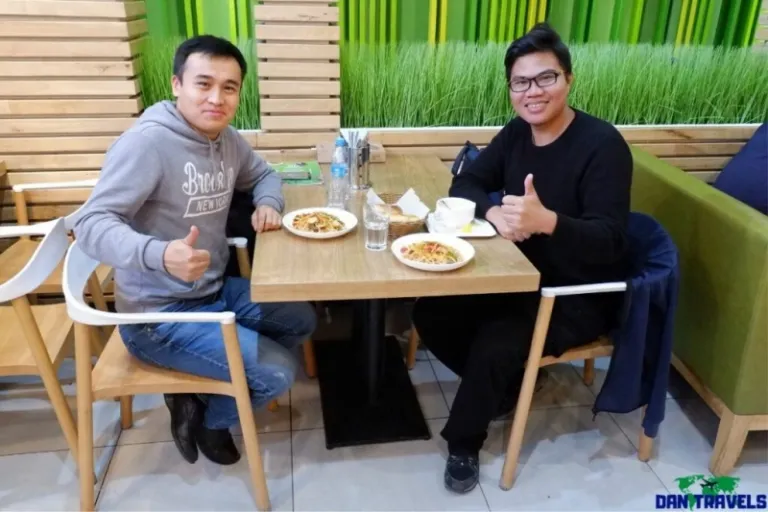 A dinner treat from my Kazakh friend Akniyet on my first night in Nursultan.
A dinner treat from my Kazakh friend Akniyet on my first night in Nursultan.
Do you need a visa for Kazakhstan?
For many nationalities, including the Philippines, Kazakhstan now offers visa-free entry for short stays, making it easier than ever to explore the country. Always check the latest visa policies before travelling, as requirements may change.
Where is Nursultan (Astana)?
Astana is located in central Kazakhstan, along the Ishim River. It lies on the flat, semi-arid steppe that covers much of the country. The city is just over three hours by air from Moscow and around four and a half hours from Dubai.
Language: Kazakh and Russian
Currency: Kazakhstani Tenge (KZT)
Airport: NQZ (Nursultan Nazarbayev International Airport)
Preferred mode of transportation: Bus, taxi, and ridesharing apps
Time Zone: GMT +6
Flights to Nursultan (Astana)
Finding affordable flights to Astana is fairly straightforward, with connections from Europe, the Middle East, and across Central Asia. Popular airlines such as Air Astana and SCAT Airlines serve the capital, and price comparison platforms like Kayak or Skyscanner are excellent for finding the best fares.
How to get around Nursultan
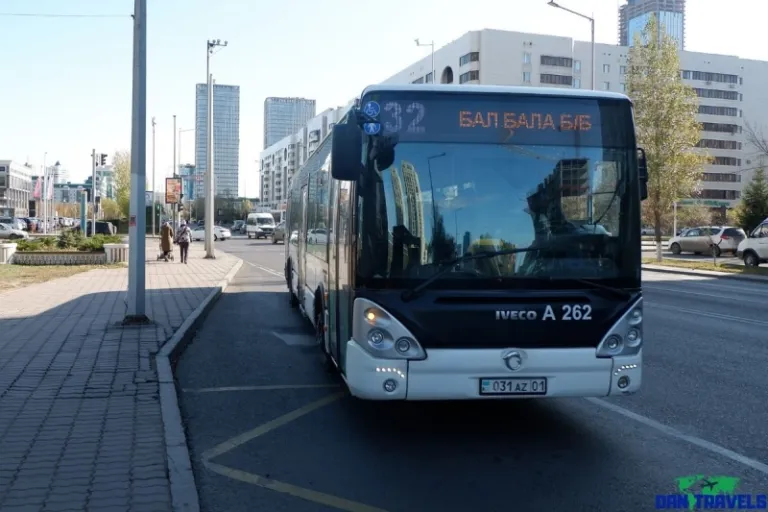 Bus number 32 in Nursultan.
Bus number 32 in Nursultan.
By bus
Astana has an efficient bus system with routes clearly marked at many stops. Services usually run from early morning until late evening. Cash fares are about ₸180, while paying by card can cut the cost in half. The 2GIS offline map app is highly recommended as it shows real-time bus routes and works without internet data.
By foot
Astana is a walkable city for many attractions, though distances can be longer than expected. Be sure to dress appropriately in winter when temperatures can drop well below freezing.
By taxi
Taxis are convenient but more expensive than buses. Popular ride-hailing apps are available, making it easy to book and pay.
How I got to the city
Astana NQZ Airport is about 15–20 km from the city centre. Travellers can take a bus for an affordable ₸180 or opt for a taxi or rideshare for a faster, more comfortable ride.
Where did I stay?
Budget travellers will find hostels and guesthouses across the city, while mid-range and luxury options are readily available through platforms like Booking.com and Agoda. Airbnb is also popular for those who prefer a more local stay in residential neighbourhoods.
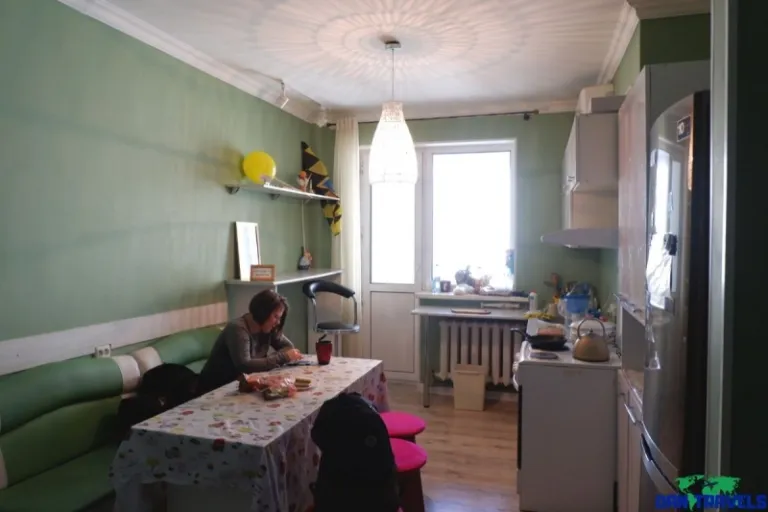
My three-day Nursultan itinerary
Day 1
Bayterek Tower
This tower symbolises a Kazakh folk tale about the mythical tree of life and the bird of happiness. The golden sphere at the top represents the egg of Samruk, laid between the branches of the tree. Today, it remains one of Astana’s most iconic landmarks, offering panoramic city views.

Duration (getting there and visiting): One to two hours
How I got here: By bus (using the 2GIS Maps app, still handy in 2025)
City Park
City Park in Astana is vast, with sculptures, fountains, and open spaces for leisure. The Presidential Palace stands at one end, while the gardens nearby remain beautifully maintained. It is a popular spot for both locals and tourists to enjoy a relaxing walk.
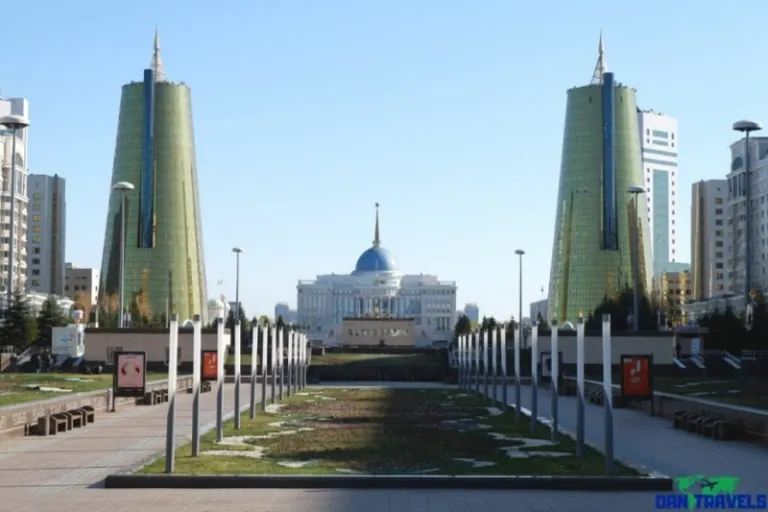
Duration (getting there and visiting): One to two hours
How I got here: By foot from Bayterek Tower
Nur-Astana Mosque
Although Astana now boasts even larger mosques, the Nur-Astana Mosque remains a welcoming and peaceful place to visit. Its golden dome and spacious interior make it a calming stop, and it is free to enter regardless of your faith.
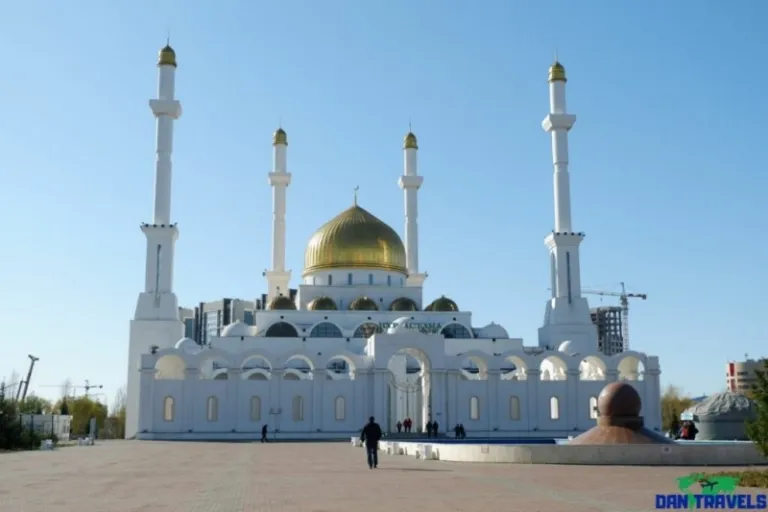
Duration (getting there and visiting): One to two hours
How I got here: By foot from City Park
Lover’s Park
Despite the name, Lover’s Park is not just for couples. It is a wide open green space with activities for families, joggers, and casual visitors alike. In spring and summer, the park is particularly lively with locals spending time outdoors.
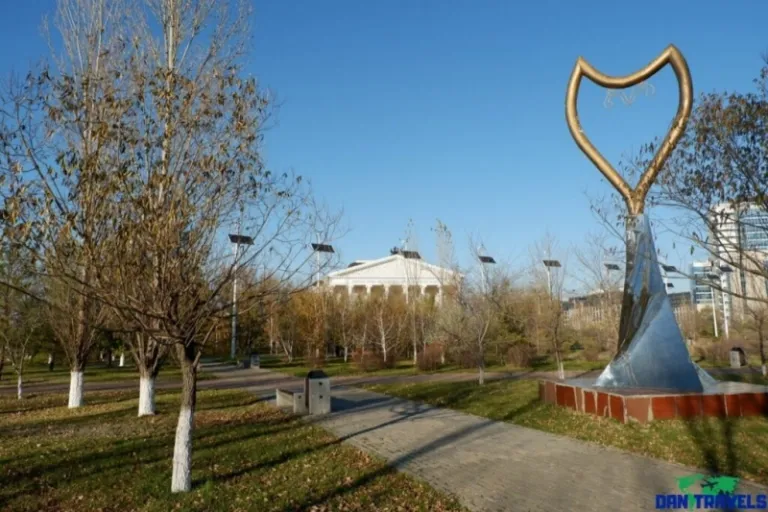
Duration (getting there and visiting): One to two hours
How I got here: By bus (using 2GIS Maps)
The National Opera Building
The National Opera and Ballet Theatre is striking, built in a neoclassical style complete with columns. It is worth visiting whether for its design or to catch a performance if the timing works out.
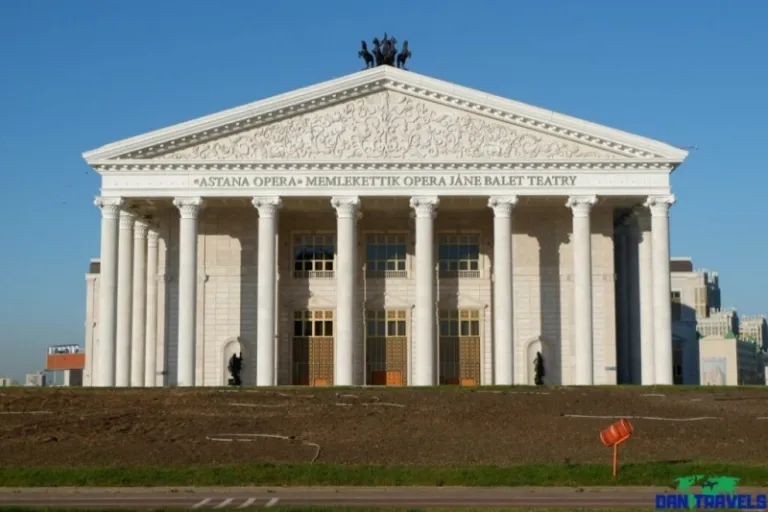
Duration (getting there and visiting): One to two hours
How I got here: By foot from Lover’s Park
Khan Shatyr
Khan Shatyr, meaning “Royal Marquee”, remains one of Astana’s most extraordinary buildings. The tent-like structure houses a shopping and entertainment complex with restaurants, a cinema, and even an indoor beach club. It is as much a leisure hub as it is an architectural attraction.
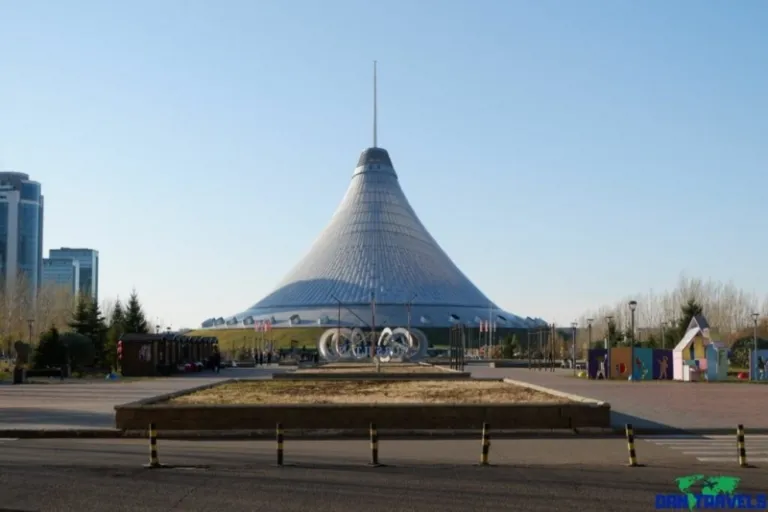
Duration (getting there and visiting): One to two hours
How I got here: By foot from the National Opera Building
Day 2
Palace of Peace and Reconciliation
Completed in 2006, this glass-and-steel pyramid was designed by British architect Norman Foster. It still serves as a centre for cultural exhibitions and interfaith dialogue, while also being one of Astana’s most photographed landmarks.

Duration (getting there and visiting): One to two hours
How I got here: By bus (using 2GIS Maps)
Independence Square and Kazak Eli Monument
This grand square and monument continue to symbolise Kazakhstan’s modern identity. The scale of the area, coupled with the striking white arch and golden statue, makes it a must-see for anyone visiting Astana.
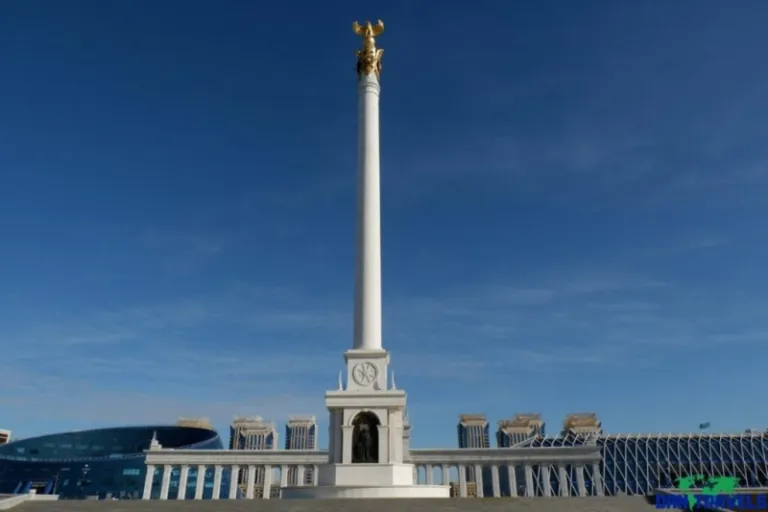
Duration (getting there and visiting): One to two hours
How I got here: By foot from the Palace of Peace and Reconciliation
Hazret Sultan Mosque
Still one of the largest mosques in Central Asia, Hazret Sultan stands out for its elegant domes and ornate detail. It is visible from across the city and is especially stunning at sunset.
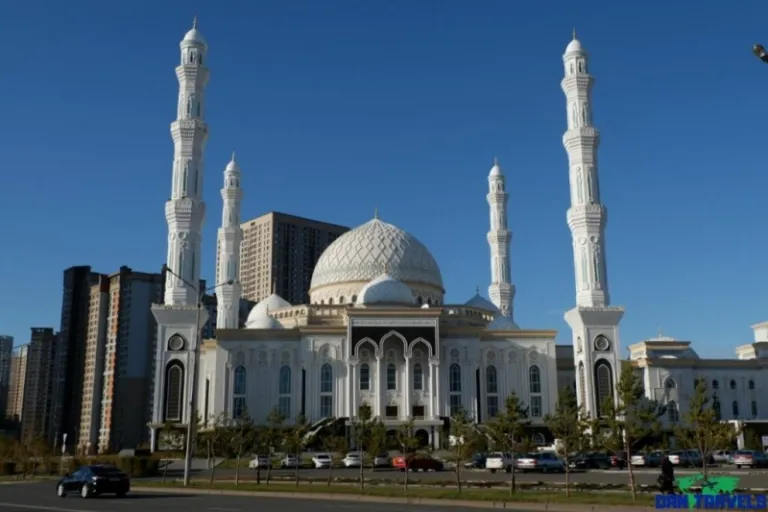
Duration (getting there and visiting): One to two hours
How I got here: By foot from Kazak Eli Monument
Kazakhstan Military History Museum
This museum continues to impress visitors with its exhibitions on Kazakhstan’s military history, from ancient warriors to modern times. The displays of Soviet-era equipment and the yurt-shaped design make it a unique stop.
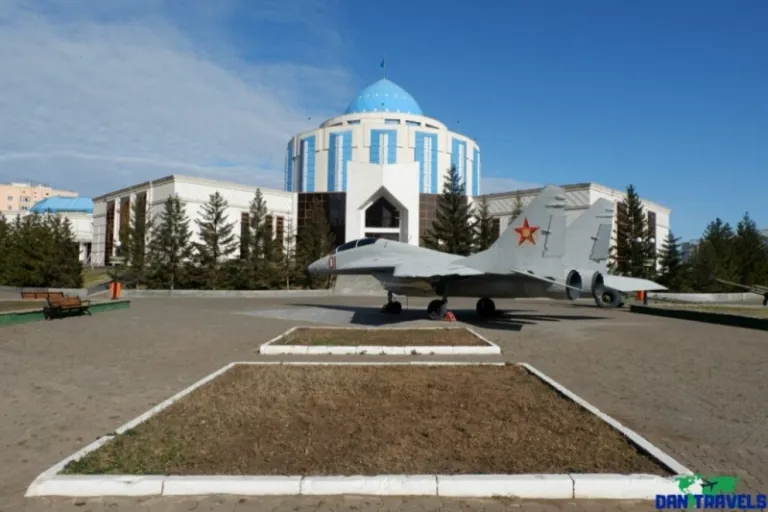
Duration (getting there and visiting): One to two hours
How I got here: By bus (using 2GIS Maps)
Quay Astana Bridge
The pedestrian bridge remains a striking piece of architecture along the Ishim River. It is a great spot for photos and an evening stroll, particularly when the city lights are reflected on the water.

Duration (getting there and visiting): One to two hours
How I got here: By foot from the Military History Museum
Day 3
Triumphal Arch Mangilik El
Located at the centre of a busy roundabout, this monument symbolises Kazakhstan’s independence and prosperity. You can access it via underground passages. Look out for the “I Love Astana” sign nearby for a classic photo opportunity.

Duration (getting there and visiting): One to two hours
How I got here: By bus (using 2GIS Maps)
Expo 2017 Complex
Built for the 2017 World Expo, this futuristic complex remains a highlight of the city. Its spherical building, Nur Alem, houses exhibitions on renewable energy and technological innovation. Even years after the event, it stands as one of Astana’s architectural marvels.

Duration (getting there and visiting): One to two hours
How I got here: By foot from the Triumphal Arch
MEGA Silk Way
Across from the Expo site, this shopping centre is one of Astana’s largest, with restaurants, cafes, and shops for all budgets. It is also a convenient stop for travellers with layovers, thanks to its location near the airport.

Duration (getting there and visiting): One to two hours
How I got here: By foot from the Expo 2017 complex
On my last day in Astana, I stayed with a local host from Couchsurfing. His name was Darkhan, and he even cooked a traditional meal for me a reminder of Kazakh hospitality that makes the trip even more memorable.
Also read: 10 Things to Do in Kazakhstan + Tips for Filipinos
 Darkhan and I with the meal he prepared.
Darkhan and I with the meal he prepared.
My 3-day expenses in Nursultan
Note: These costs reflect my past trip and are included as a sample budget. Prices in Astana have risen since then, so travellers in 2025 should expect higher expenses for accommodation, meals, and transport.
Day 0 (Arrival)
Flight: ₱10,470
Three-night stay at Hostel Infiniti: ₱680
Groceries: ₱230
Laundry: ₱40
Daily total: ~₱11,400
Day 1
Bus fares: ₱72
Meals and drinks: ₱54
Daily total: ~₱130
Day 2
Bus fares: ₱72
Meals and drinks: ₱72
Daily total: ~₱140
Day 3
Bus fares: ₱48
Meals and drinks: ₱217
Daily total: ~₱260
Day 4 (Departure)
Train ticket to Almaty (booked online): ₱15
Bus fares: ₱48
Snacks: ₱30
Daily total: ~₱90
Total expenses (sample): ~₱12,000
Travel insurance
Travel always comes with risks, whether you are trekking in the Kazakh mountains or exploring the streets of Astana. That is why having reliable travel insurance is essential. I recommend checking providers such as World Nomads or SafetyWing, both trusted by many travellers in 2025.
Published at
About Author
Daniel Forteza
Subscribe our Newsletter
Get our weekly tips and travel news!
Recommended Articles
10 Bantayan Island Resorts, Hotels, and Rentals for Your Tropical Escape 14 Best Credit Cards for Travel in the Philippines The only plastic we need for travel.
10 Best Mountain Cafes in the Philippines for Your Peak Coffee Experience Coffee date on the mountains, anyone?
10 Best Things to Do in Los Angeles Los Angeles is more than Hollywood stars. From hikes with killer views to beaches straight out of a rom-com, here are 10 must-do LA experiences for Filipino travellers or any wanderers in general!
10-day Christmas and New Year Japan Trip: Complete Travel Itinerary Celebrate Christmas and New Year in Japan with this 10-day holiday vacation itinerary packed with Tokyo lights, Kyoto charm, and Osaka adventures.
Latest Articles
British-Favorite Marks & Spencer Is Leaving The Philippines This May What about my digestive cookies?!?!
Cebu to Open Its Own Arena (Bigger Than MOA Arena) This June! No need to fly to Manila for big concerts!!!
Batangas City to Get New 4-Lane Bridge to Replace Aging "Bridge of Promise" The "pansamantagal" era is finally ending
House Panel Approves Bill to Remove Travel Tax for Filipinos Here is what you need to know about the extra savings for your next flight.
Filipinos Can Now Travel to Armenia Visa-Free! Check the 2026 requirements and a 5-day itinerary here.

